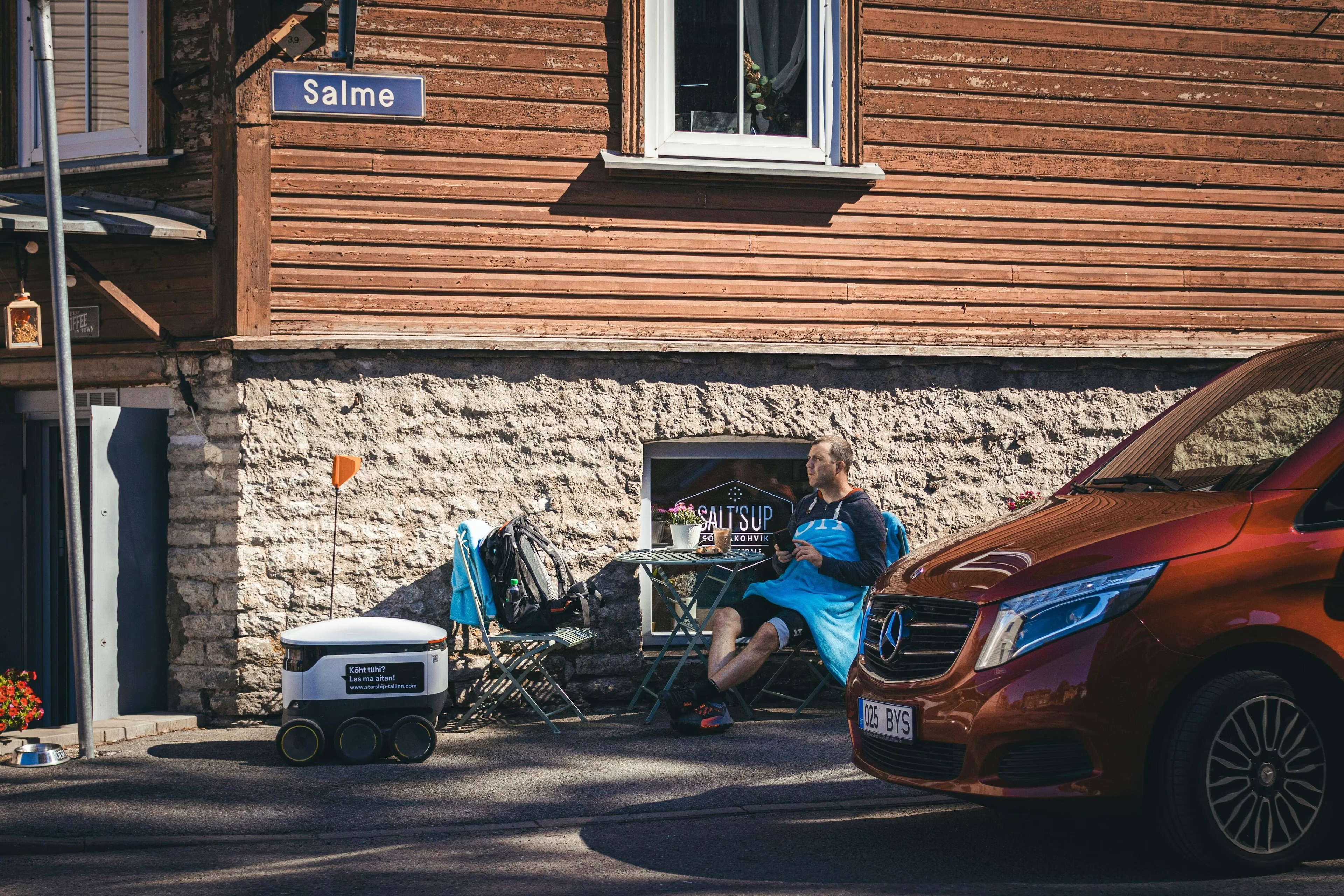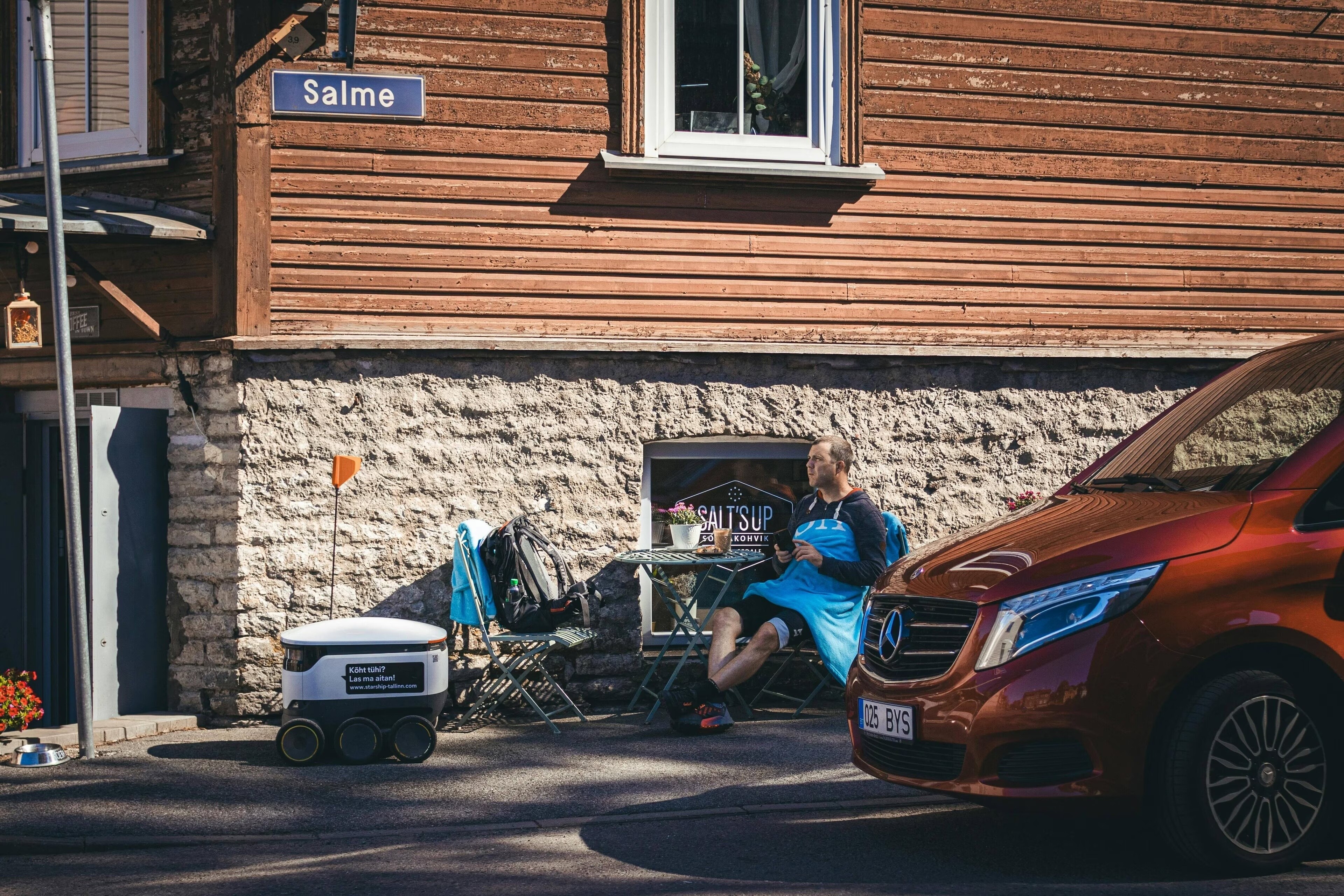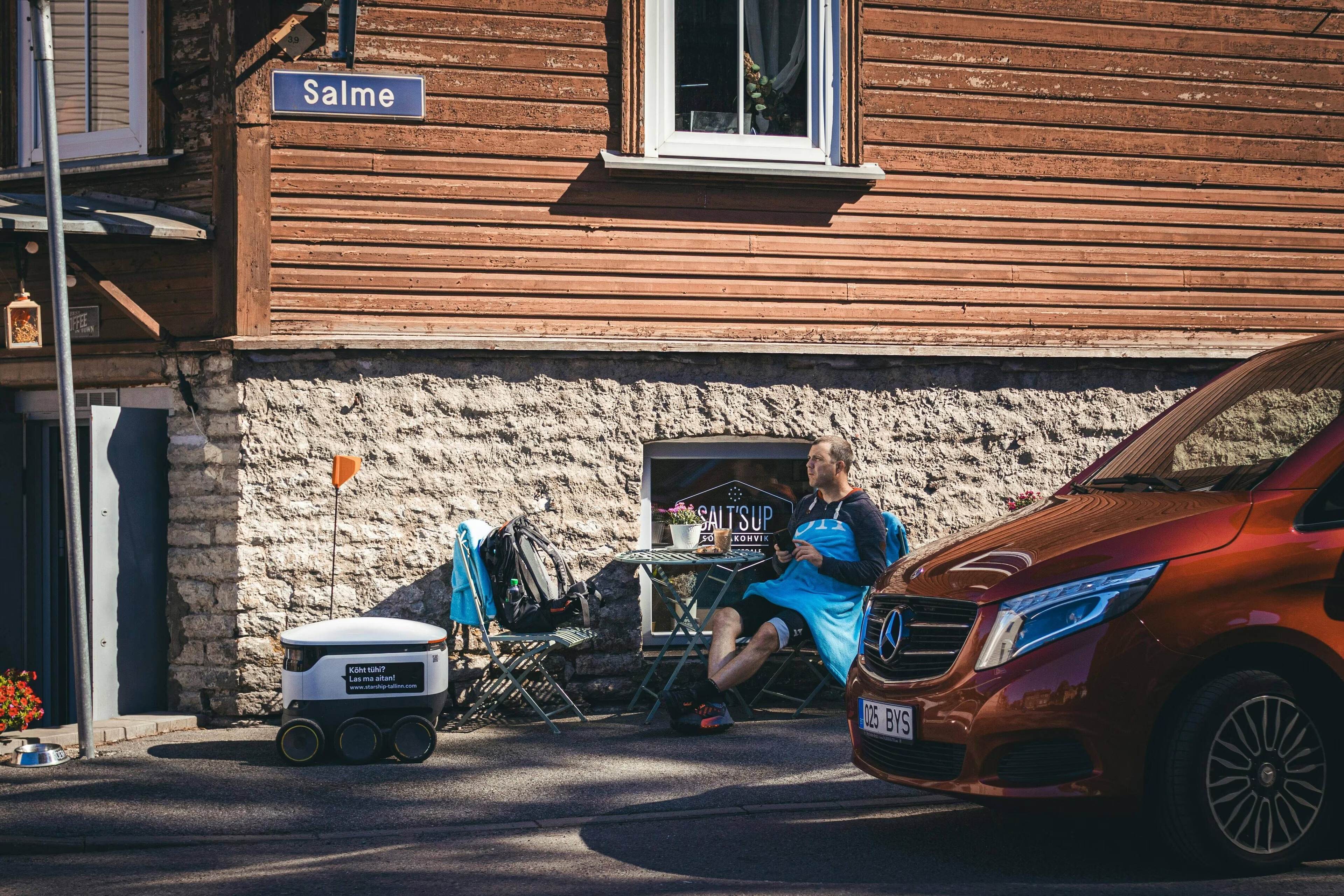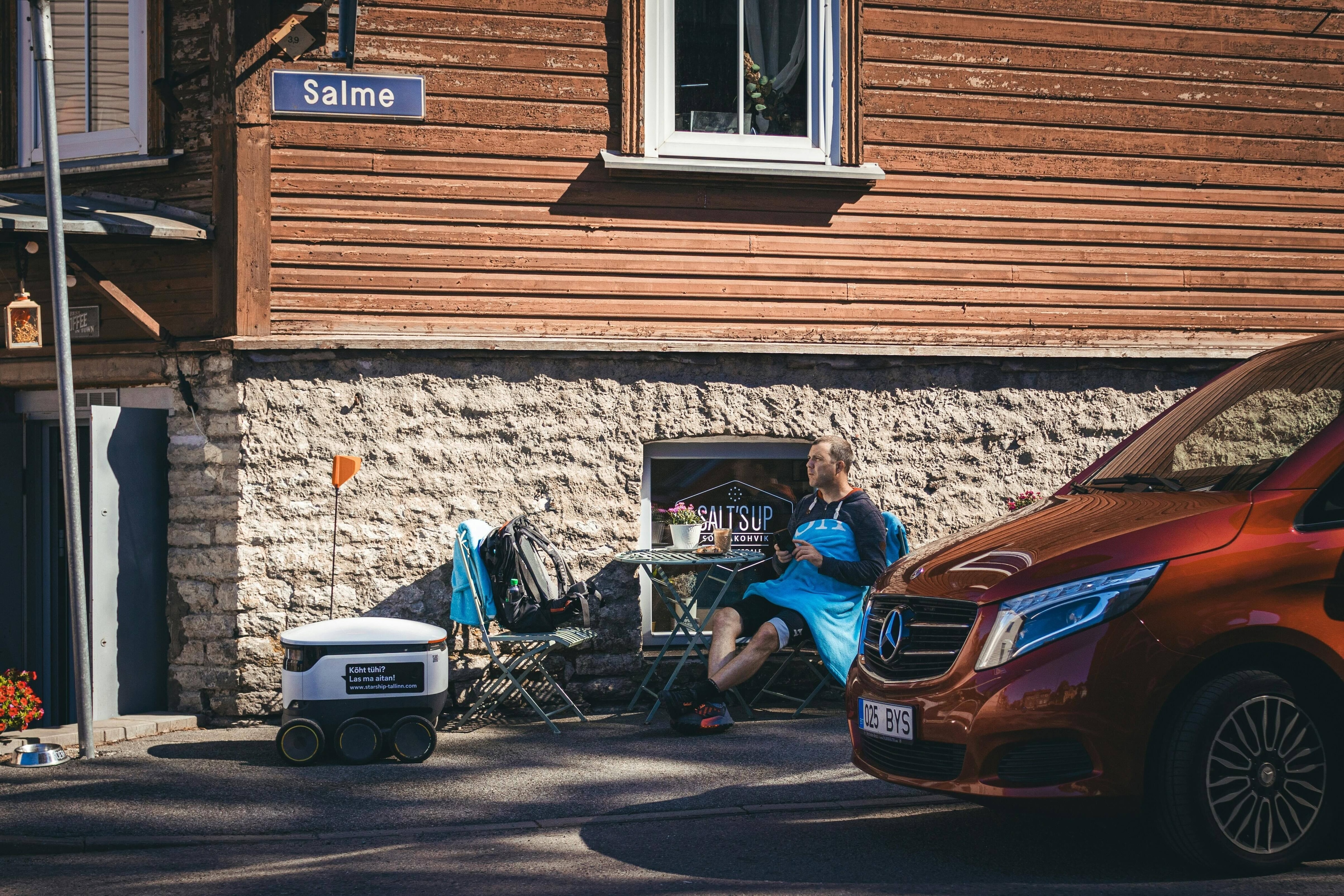
移动机器人与人类如何安全共享公共空间
人类的导航行为高度依赖社交线索与协商互动。我们本能地为拄拐者让路,为急救人员开辟通道,并通过微妙的身体语言和眼神交流相互避让。当前机器人缺乏这些沟通渠道,带来重大挑战:在公共区域作业的机器人如何向周围人类传达其优先通行权?
Bern Grush is the Executive Director of the Urban Robotics Foundation and project lead for the draft technical standard ISO 4448 "Public-area mobile robots." Since 2002, Bern has been involved with transportation-related innovation, standards, and regulatory research for road pricing, parking management, automated vehicles, and now the robots designed to clean and inspect sidewalks, deliver groceries, secure neighbourhoods, operate autonomous wheelchairs at hospitals and airports, and scrub floors at the mall. Before that, he founded PCI Geomatics to develop AI for image analysis systems for earth-imaging satellites. He has degrees in Human Factors Psychology from the University of Toronto and Systems Design Engineering from the University of Waterloo.
人类的导航行为高度依赖社交线索与协商互动。我们本能地为拄拐者让路,为急救人员开辟通道,并通过微妙的身体语言和眼神交流相互避让。当前机器人缺乏这些沟通渠道,带来重大挑战:在公共区域作业的机器人如何向周围人类传达其优先通行权?
La navegación humana depende en gran medida de señales sociales y de la negociación. Instintivamente nos hacemos a un lado para alguien con muletas, despejamos el camino para los equipos ...
人間の移動は、社会的合図と相互調整に大きく依存しています。私たちは本能的に松葉杖をついた人に道を譲り、救急隊員のために通路を確保し、微妙な身振りや視線のやり取りを通じて互いに進路を譲り合います。現在のロボットにはこうしたコミュニケーション手段が欠如しており、根本的な課題が生じています。公共空間で稼働するロボットは、周囲の人間に対して自らの優先権をどう伝達すべきでしょうか。
Human navigation relies heavily on social cues and negotiation. We instinctively move aside for someone on crutches, clear paths for emergency responders and navigate around each other th...


